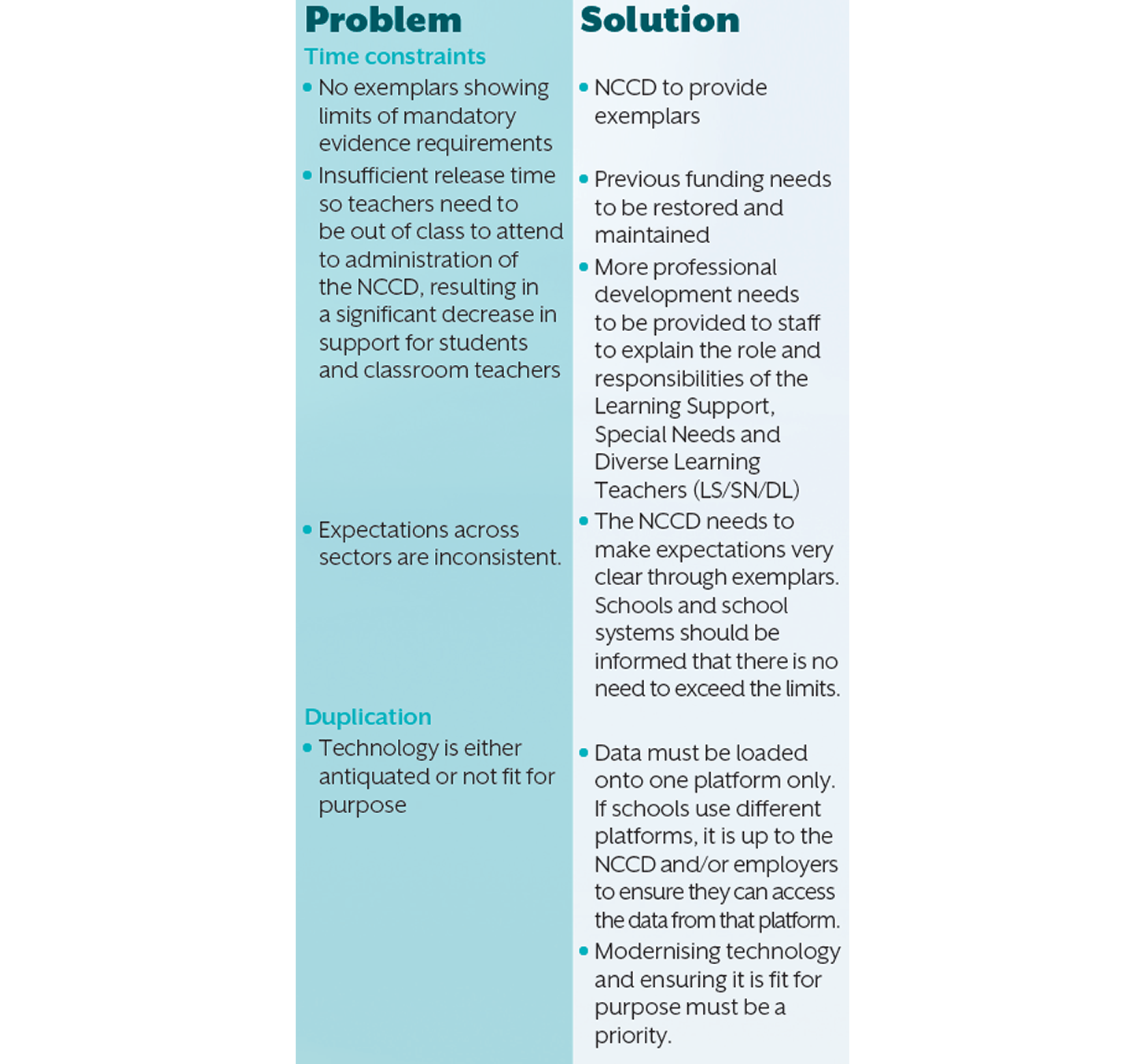
The Nationally Consistent Collection of Data on School Students with Disability (NCCD), collects data about school students with disability who are receiving adjustments to ensure they enjoy the same access to education as their peers.
All schools have to report data they collect for the NCCD to the Federal Government every year. The stated aim is to enable schools, education authorities and the government to better understand the needs of students with disability and how funding can be allocated to best support them at school.
However, many of our members have raised workload and professional impact issues arising from the NCCD process. While COVID-19 exacerbated some of these issues, there are some flaws inherent in the system that have put increasing pressure on teachers tasked with implementing the NCCD.
Working group
The IEU invited a group of members closely associated with the program to form a working group and attend a meeting at the Ultimo office on Tuesday 7 July. Six members attended in person, while two more joined the group via Zoom. Union officers Liam Griffiths, Pam Smith, Pat Devery and Veronica Yewdall attended at Ultimo, while IEUA Federal Secretary Chris Watt participated via Zoom.
Chris Watt outlined the big picture issues underpinning the inconsistencies and unnecessary complexities of the NCCD. Members shared their experiences of grappling with unreasonable deadlines and evidence requirements, and identified factors that create workload and professional issues. Time constraints, duplication of tasks, technology issues and lack of clarity around accountability were all identified as intensifying teachers’ workloads.
Analysing issues
In the second session, the group refined and prioritised the issues, devising viable and reasonable solutions. The NCCD is already on the agenda for the IEUA's upcoming Education Issues Committee and Federal Executive meetings.
The group will reconvene, probably in Term 4 or early 2021, to discuss taking these concerns to the national agencies and employer groups.
A key issue is a fundamental lack of research underpinning the validity and efficacy of the NCCD process. Thus, the NCCD becomes a crude vehicle for economic auditing rather than a mechanism for ensuring students with special needs receive the assistance promised to them through targeted funding and interventions.
The union needs to explore solutions at multiple levels: federal government policy, peak employer bodies, school systems and school leadership teams. To address the lack of analysis of the validity of NCCD process and outcomes, the federal office of the IEUA is considering sponsoring a research project.
As part of this initiative, the union is developing a state wide survey. This survey will be directed to those members who hold the major responsibility for completing the NCCD process in their schools. We will use the information provided by our members to prepare submissions.
Other issues and proposed solutions include:



































































































































